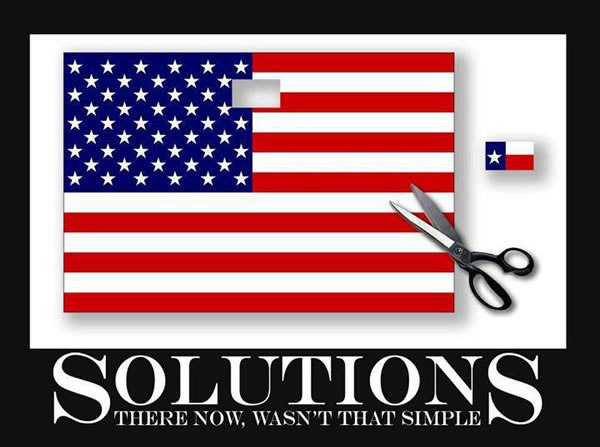The United States Supreme Court shocked many Americans last Thursday when it upheld the controversial Affordable Care Act, otherwise known as Obamacare, delighting liberal Democrats and infuriating Republicans and Libertarians because of the vast power that has now been vested in the federal government. It is a power that, left unchecked, will forever change the relationship between the government and the People.

When the bill was passed two years ago, it was 2,700 pages long and chocked full of spending for new and expanded programs, mandates on insurance companies, and pet projects designed to completely overhaul the American health care business. (By contrast the United States Constitution and Bill of Rights are six pages long and mostly places limits on the government and defines and expands the Liberty of the People.) But the linchpin of the Affordable Care Act is a provision known as the individual mandate.
That provision requires all Americans who can afford it to go buy health insurance. Of course, if you already have insurance, that’s great. But if you’re sitting around doing something un-American like saving your money for retirement or just using it to buy beer, then Uncle Sam now tells you to go buy health insurance. And if you don’t, you’ll face a penalty.
Phrasing is important here because the White House and the Congress insisted this is in no way a tax on the People but just a fine for failure to comply with a lawful order under something called “the Commerce Clause” – a provision of the Constitution that gives Congress the power to regulate interstate commerce. The clause was meant to keep states from putting up barriers to trade between themselves – and basically created a 13-state free trade zone. Unfortunately, it has since been perverted to allow the federal government to stick its foot in all our business on everything from how much water the washing machine you buy uses to what kind of light bulb you can put in your house, but I digress.
The court’s ruling found that the individual mandate would in fact be unconstitutional under the Commerce Clause – because, well, heck the government could then make you buy anything. But five of the nine justices found that mandate was constitutional under Congress’ power to levy taxes. A penalty is a tax, they said, even though the Supreme Court has never ever said that before.
Chief Justice John Roberts, who was appointed by a conservative Republican, President George W. Bush, cast the deciding vote and wrote the majority opinion, in which he basically asserts that Congress can in fact make you buy anything or face a penalty… oops… a tax. Roberts wrote: “Suppose Congress enacted a statute providing that every taxpayer who owns a house without energy efficient windows must pay $50 to the IRS…. No one would doubt that this law imposed a tax, and was within Congress’s power to tax.”
I would doubt it was within Congress’ power, and I would be squealing like a stuck pig about it. But Roberts wasn’t finished with his brilliant ruling, writing that when the government makes rules under the Commerce Clause it brings about its “full weight” on the matter. “An individual who disobeys may be subjected to criminal sanctions. Those sanctions can include not only fines and imprisonment, but all the attendant consequences of being branded a criminal. . . . By contrast, Congress’s authority under the taxing power is limited to requiring an individual to pay money into the Federal Treasury, no more.”
Limited to requiring an individual to pay money? Is he flipping kidding us right now? People go to jail for tax evasion. If you don’t pay your taxes, you can go to federal prison. If you resist arrest for this offense or try to escape from federal prison you risk being shot and killed. Limited to paying money… Balderdash! The Chief Justice has clearly lost his mind.
Two hundred and thirty-six years ago this week, our Founding Fathers put their lives and fortunes on the line when they declared that all men are created equal and have certain natural rights from their Creator and that governments are established to secure these rights, and then they wrote:
“— That whenever any Form of Government becomes destructive of these ends, it is the Right of the People to alter or to abolish it, and to institute new Government…”
The American people have a chance to stop this affront to our rights. They can vote Mr. Obama out of the White House this November and send all of his allies in Congress packing, too. But the odds are not good. Gov. Romney, who has been foolishly chosen as the Republican nominee by the party establishment, is not the most credible spokesman on this issue, and then, too, Republicans don’t always vote the way they should in Congress. A full repeal of this act is necessary but not likely.
The consequences for either re-electing Mr. Obama or failing to repeal the act in its entirety are unthinkable. The federal government will be left unchecked in the role it can play in our lives. It will have become destructive of our Liberty, and then it well may be time to reconsider the political ties between Texas and the United States.



Basically Chief Justice John Roberts has laid waste to 236 years in massive expenditures of blood and treasure making them meaningless unless ‘We the people” demand representation from those we elect this coming November. The first revolution was about taxation without representation, among other things. Now we have this massive taxation by misrepresentation and if tolerated we will no longer be a free or prosperous people.
It is imperative that Obama be defeated along with his minions in the Congress if we are to maintain our right to self governance. It remains to be seen if a change in administration will do what we expect of them. If not, what next? That is a question that everyone needs to be thinking about. Our ‘comfort zone’ is about to be put to the greatest test our country has seen since the Founding Fathers began this ‘great experiment’ of self governance.
Clear thinking Mr. Estlack! You have my gratitude for telling it like it really is . . . Commerce Clause and all.